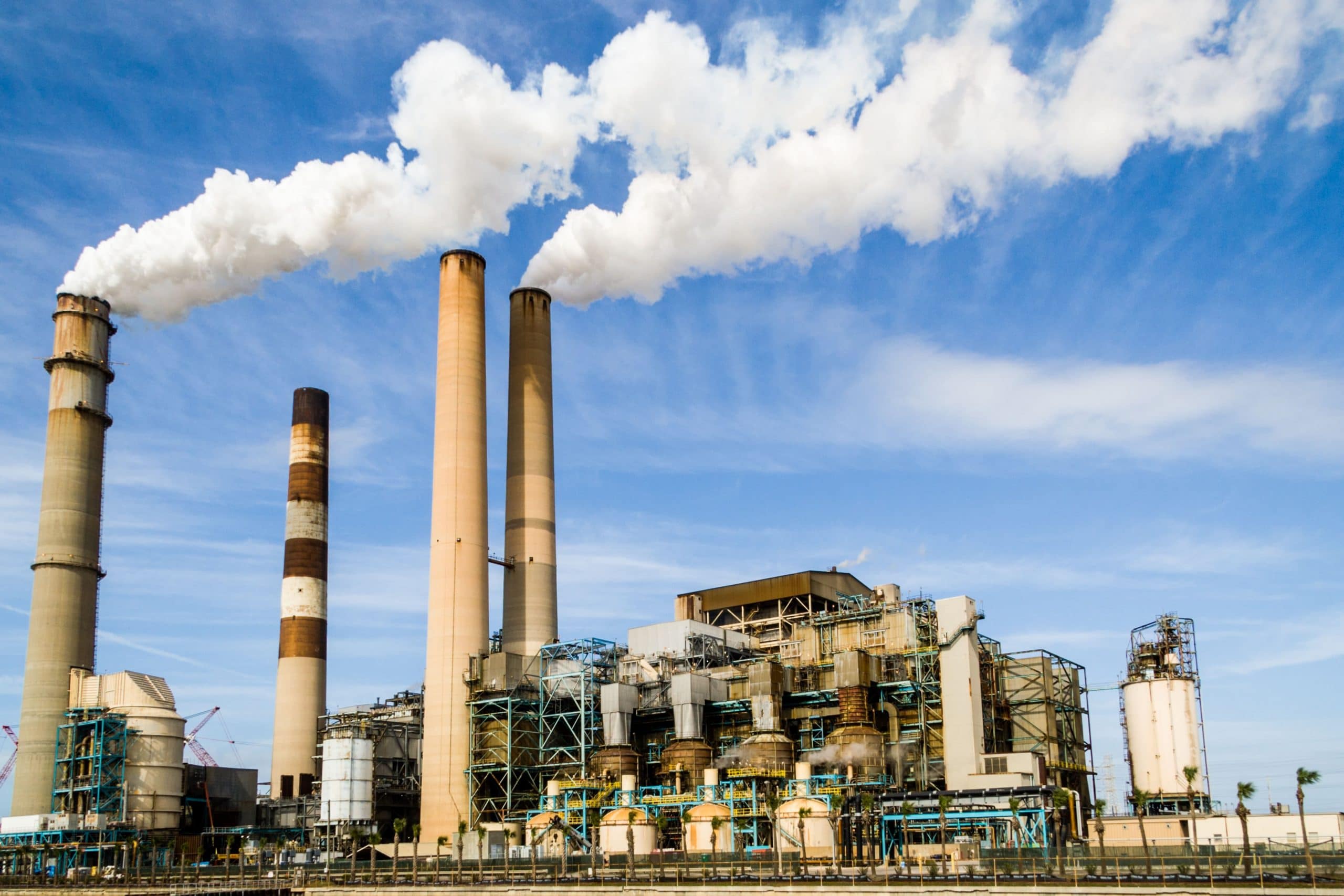Carbon Tax Provisions

Carbon tax provisions are regulated in Article 13 of the Law 7/2021 in which carbon tax will be imposed on entities producing carbon emissions that have a negative impact on the environment.
Legal Basis:
Law No. 7 of 2021 regarding Harmonization of Tax Regulations (“Law 7/2021”)
Legal Analysis:
A. General Provisions of Carbon Tax
In order to achieve the goals of the Paris Agreement of The United Nations Framework Convention on Climate Change, the Government establishes national commitments to address global climate change as set out in the Nationally Determined Contribution (“NDC”).
To achieve the NDC target, the Government then uses the Carbon Economic Value (“CEV”) instrument consisting of trade and non-trade instruments. Non-trade instruments are used to implement the policy on the carbon tax imposition, which will be regulated in the Law 7/2021.
Carbon tax provisions are regulated in Article 13 of the Law 7/2021 in which carbon tax will be imposed on entities producing carbon emissions that have a negative impact on the environment. Based on the Law 7/2021, the imposition of carbon tax will be carried out by focusing on two specific schemes i.e., the carbon tax scheme (cap and tax) and the carbon trade scheme (cap and trade).
In the carbon trade scheme, individual or company (“entities”) that produce emissions exceeding the cap are required to purchase for an emission permit certificate (“Sertifikat Izin Emisi”/SIE) from other entities that produce emissions below the cap.
In addition, entities can also purchase emission reduction certificates (“Sertifikat Penurunan Emisi”/SPE). However, if the entity is unable to purchase SIE or SPE in full for the resulting emissions, the cap and tax scheme will apply where entities producing residual emissions that exceed the cap will be subject to carbon tax.
B. Roadmap Carbon Tax
Based on Article 13 paragraph (3) of the Law 7/2021, the policy on the carbon tax roadmap will be determined by the Government with the approval of the House of Representatives of the Republic of Indonesia, which contains several things:
| Contents | Remarks |
| Carbon emission reduction strategy | The government has committed to reducing greenhouse gas emissions by 29% with its own effort and by 41% with international support in 2030 to achieve Net Zero Emissions (NZE) by 2060 at the latest. |
| Prioritized target sector | The emission reduction target for the energy and transportation sector and the forestry sector already covers 97% of the total Nationally Determined Contributions (NDC) emission reduction targets, meaning that they will become the main priority in terms of reducing greenhouse gas emissions. |
| Harmonization with the development of new and renewable energy | The mix of carbon tax policies, carbon trading and sectoral technical policies, including the phasing out of coal, the development of new and renewable energy and/or attempts to increase biodiversity is expected to support the achievement of the NZE 2060 target while still prioritizing the principle of a just and affordable transition for the public and ensuring the certainty of the business climate. |
| Harmonization with other policies | The carbon-tax roadmap will include, among others, a strategy for reducing carbon emissions through the NDC, priority-sector targets and/or the promotion of the development of new and renewable energy. The roadmap will be further determined by or based on Government Regulation. |
C. Carbon Tax Rate
Article 13 Paragraph (8) of the Law 7/2021 explains that the carbon tax rate will be set higher or equal to the carbon price in the carbon market per kilogram of carbon dioxide equivalent (CO2e) or equivalent units.
If there is a situation where the price of carbon in the carbon market is lower than Rp. 30,00 per kilogram of carbon dioxide equivalent (CO2e) or an equivalent unit, the carbon tax rate is set at a minimum of Rp. 30,00 per kilogram of carbon dioxide equivalent (CO2e) or equivalent units.
D. Carbon Taxpayer Subject
Article 13 paragraph (5) of the Law 7/2021 explains that a carbon tax can be imposed on individuals or entities that purchase goods containing carbon and/or carry out activities that produce a certain amount of carbon emissions for a certain period, which in this case the specified period includes:
- At the time of purchase of goods containing carbon;
- At the end of the calendar year period of activities that produce a certain amount of carbon emissions; or
- Other times regulated by or based on Government Regulation.
Revenues from carbon taxes can be allocated for climate change control. In addition, Taxpayers who participate in carbon emissions, carbon emission offsets, and/or other mechanisms in accordance with the laws and regulations in the environmental sector can be given facilities, as follows:
- Carbon tax reduction; and/or
- Other treatments to help fulfill carbon tax obligations.
Read More: Government Regulation No. 35 of 2021. What’s The Impact?
E. Carbon Tax Applicability
The implementation of tax rights and obligations is carried out in accordance with the provisions of the legislation in the field of general provisions and taxation procedures in Indonesia.
In general, this provision will be effective on April 1, 2022, as stated in Article 17 paragraph (3) of the Law 7/2021 that this provision will first be imposed on entities that are engaged in coal-steamed power plants at a rate of Rp. 30,00 per kilogram of carbon dioxide equivalent (CO2e) or equivalent units.
Furthermore, the provisions on the imposition of carbon tax in Indonesia will be implemented in stages based on the following schedule:
| Year | Implementation |
| 2021 | Development of a carbon-trading mechanism. |
| 2022-2024 | Tax mechanism based on emission limits (cap and tax) for the power generation sector, which will be limited to coal-steamed power plants. |
| 2025 onward | Full implementation of carbon trading and expansion of the carbon-tax sector in stages in accordance with the readiness of the relevant sectors and by focusing on economic conditions, the readiness of the business actors, impacts and/or scale. |
F. Additional Terms
Based on the Law 7/2021, the provisions related to the Carbon Tax will be further regulated in the implementing regulation with the following elaboration:
| Carbon Tax Implementing Regulation | Payload Material |
| Government Regulations | 1. Further provisions regarding the addition of Tax Objects subject to the carbon tax
2. Certain period provisions on carbon tax payable 3. Provisions on carbon tax subject 4. Determination of carbon tax revenue allocation for climate change control |
| Regulation of the Minister of Finance | 1. Provisions on Carbon Tax Rates
2. Provisions for Changes in Tax Rates 3. Basic Provisions for Tax Imposition 4. Provisions on the procedures for calculating, collecting, paying or depositing, reporting, and the mechanism for imposing carbon taxes 5. Provisions on the procedures for carbon tax reduction |
The regulations for the imposition of carbon tax will take effect on April 1, 2022. Thus, entities engaged in coal-steamed power plants (“PLTU”) sector need to pay attention to the provisions that the PLTU will be taxed on carbon at a rate of Rp. 30,00 (thirty rupiahs) per kilogram of carbon dioxide equivalent (CO2e) or equivalent units.






















